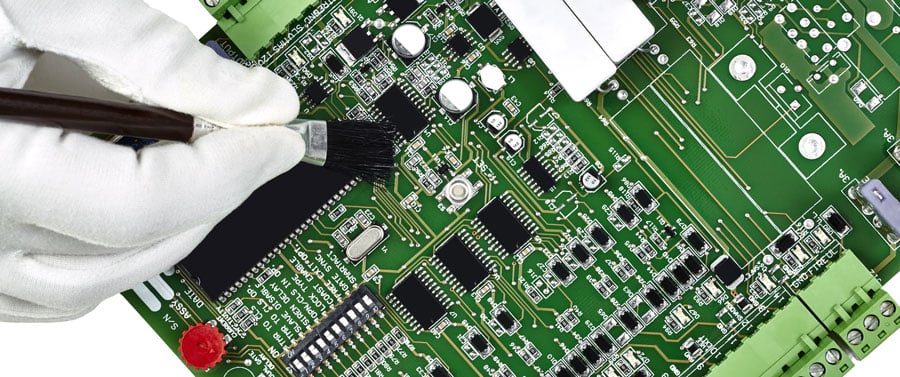
Conformal coatings are essential for protecting printed circuit boards (PCBs) from moisture, dust, and other environmental threats. There are several types of conformal coatings available in the market, with silicone, urethane, and acrylic coatings being the most common. In this pillar page, we'll discuss these three types of conformal coatings, their advantages, and what you need to know to make an informed decision.
Silicone Conformal Coatings
Silicone conformal coatings are known for their flexibility and high-temperature resistance. They are ideal for applications that require flexibility, such as when the PCB may bend or undergo thermal expansion. Silicone coatings also offer excellent moisture protection, making them a popular choice for outdoor or high humidity applications.
Advantages of Silicone Conformal Coatings:
-
High-temperature resistance: Silicone coatings can withstand high temperatures, making them ideal for high-temperature applications.
-
Flexibility: Silicone coatings are flexible, which means they can bend or undergo thermal expansion without cracking.
-
Moisture protection: Silicone coatings offer excellent moisture protection, making them ideal for outdoor or high humidity applications.
Things to Consider:
-
Potentially high cost: Silicone coatings can be more expensive than other types of coatings.
-
Limited chemical resistance: Silicone coatings are not resistant to certain chemicals, and exposure to these chemicals can cause the coating to deteriorate.
Urethane Conformal Coatings
Urethane conformal coatings are known for their durability and chemical resistance. They are ideal for applications that require high resistance to chemicals or abrasion. Urethane coatings also offer excellent moisture protection, making them a popular choice for outdoor or high humidity applications.
Advantages of Urethane Conformal Coatings:
-
Chemical resistance: Urethane coatings are highly resistant to chemicals and solvents.
-
Durability: Urethane coatings are durable and can withstand abrasion and impact.
-
Moisture protection: Urethane coatings offer excellent moisture protection, making them ideal for outdoor or high humidity applications.
Things to Consider:
-
Limited flexibility: Urethane coatings are not as flexible as silicone coatings, and may not be suitable for applications that require flexibility.
-
Potentially high cost: Urethane coatings can be more expensive than other types of coatings.
Acrylic Conformal Coatings
Acrylic conformal coatings are known for their cost-effectiveness and ease of application. They are ideal for applications that do not require high resistance to chemicals or abrasion. Acrylic coatings offer good moisture protection, making them a popular choice for low-cost applications.
Advantages of Acrylic Conformal Coatings:
-
Cost-effective: Acrylic coatings are relatively inexpensive compared to other types of coatings.
-
Easy to apply: Acrylic coatings are easy to apply and require minimal equipment.
-
Moisture protection: Acrylic coatings offer good moisture protection, making them ideal for low-cost applications.
Things to Consider:
-
Limited chemical resistance: Acrylic coatings are not as resistant to chemicals as other types of coatings.
-
Limited durability: Acrylic coatings are not as durable as other types of coatings and may not be suitable for applications that require high resistance to abrasion or impact.
Making an Informed Decision
When choosing a conformal coating for your PCB, it's essential to consider factors such as the application environment, flexibility requirements, and chemical resistance. Silicone coatings are ideal for applications that require flexibility, while urethane coatings are suitable for applications that require chemical or abrasion resistance. Acrylic coatings are cost-effective and easy to apply but may not offer the same level of protection as silicone or urethane coatings.



